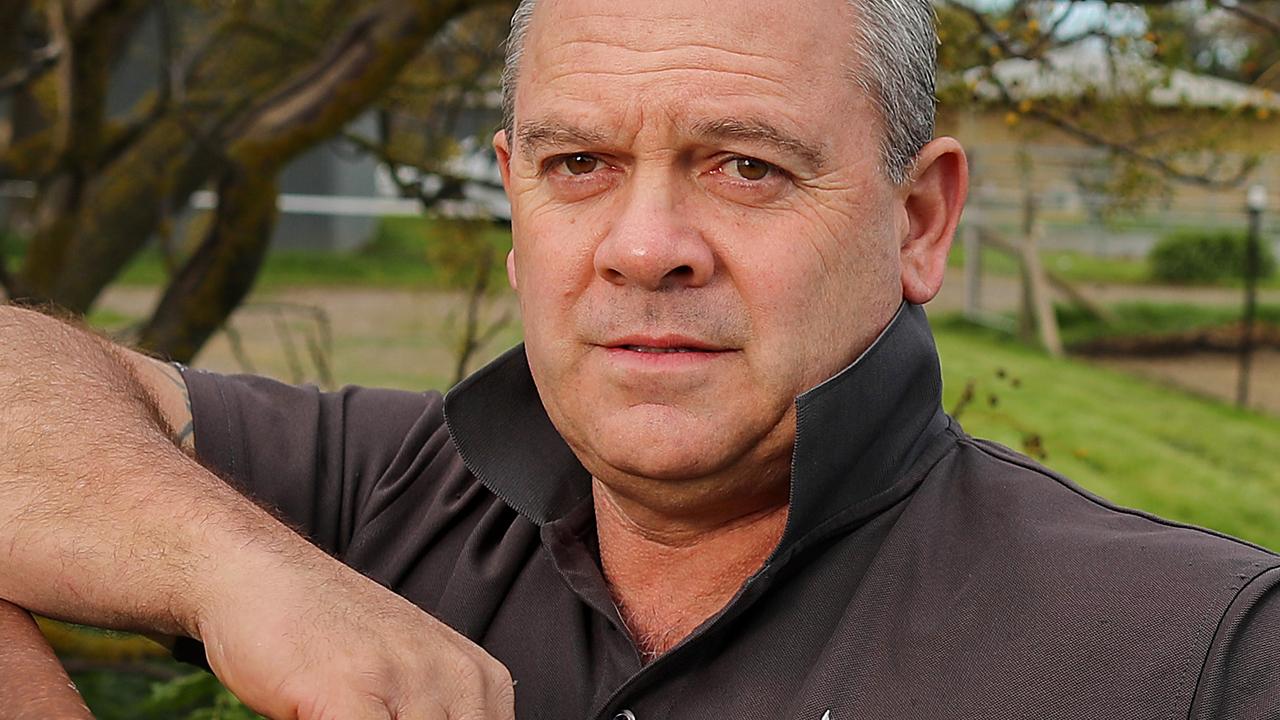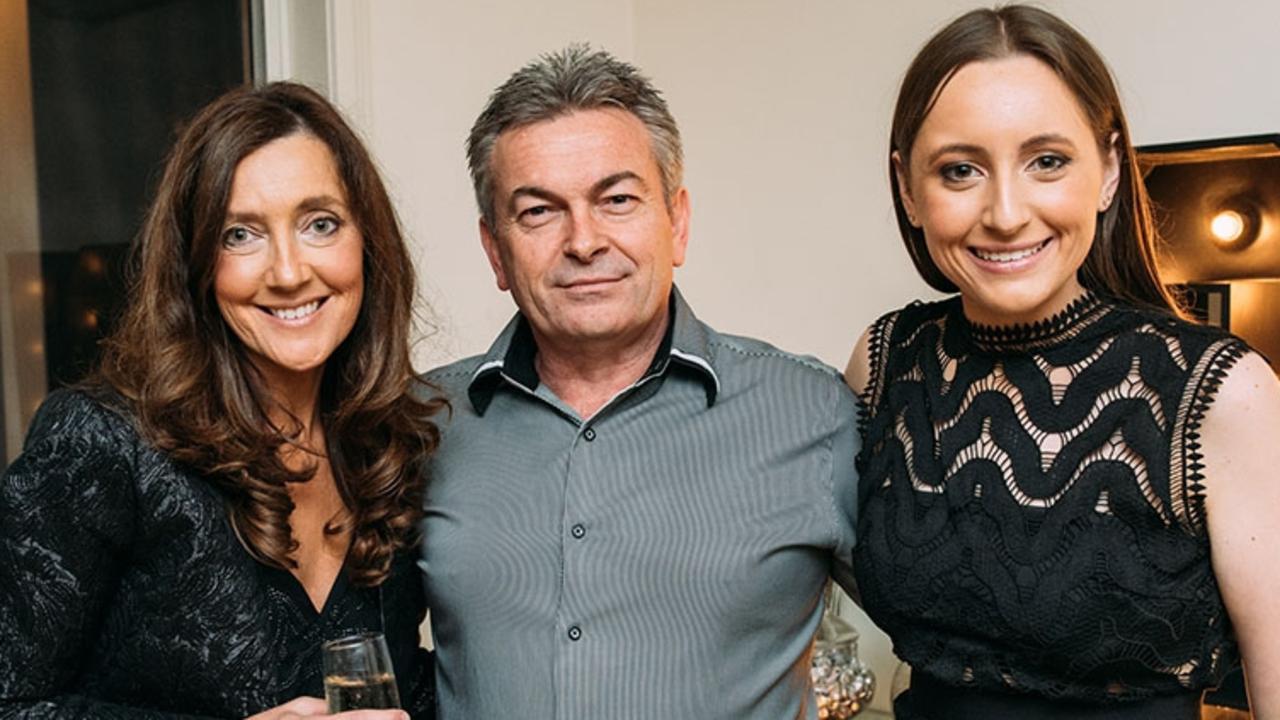How Tony Mokbel found himself in the shark tank without a cage
The gashing that followed the bashing of Tony Mokbel was the moment of truth for the master manipulator who had spent a fortune over the years arranging “friends” and protectors to keep him safe. When he needed them in Barwon Prison last Monday, they weren’t there.
In crime, as in boxing and life itself: the bigger they are the harder they fall.
Tony Mokbel’s fall came close to final this week, when he almost died allegedly from a jailhouse “shiv” meant to finish him after a savage beating by a rival prison gang.
The gashing that followed the bashing was the moment of truth for the master manipulator who had spent a fortune over the years arranging “friends” and protectors to keep him safe. When he needed them in Barwon Prison last Monday, they weren’t there.
As a former prison officer later told a reporter: “Prisons are dangerous because they are full of extremely violent people. It’s like swimming with sharks.”
Reputations (especially for wealth) are a double-edged sword: the “rep” that buys respect also makes you a target in the brutal hierarchy of the steel and concrete jungle, where might is right and the only currencies are muscle and money.
RELATED CONTENT:
LAWYER X: HOW MOKBEL BROUGHT HER UNDONE
MOKBEL’S SPRAWLING PROPERTY EMPIRE
HISTORY OF JAIL ATTACKS IN VICTORIA
In Mokbel’s case, he almost died on Monday afternoon possibly because opposition muscle outweighed his money. Suddenly, he was in the shark tank without a cage.
Mokbel held his spot as a crime heavyweight right up until the moment he was allegedly ambushed by two young Islander prisoners at a 21st birthday gathering, complete with sponge cakes and New Zealand’s gift to the world, pavlova.
It was allegedly a classic prison “sneak go”: in a heartbeat they allegedly threw the switch from happy young men going the munch to murderous attackers going the bash.
First they beat him according to the “warrior” code, inflicting ugly head injuries.
It is alleged that one attacker reached for something the party goers had prepared earlier: a sharpened “shiv” hidden in a zucchini.
At that moment, maybe, Mokbel should have recalled a piece of racetrack wisdom: never trust a Kiwi or a junkyard dog.
The attack marks 30 years of “the life” for Mokbel, one of the biggest Australian drug kingpins alongside “Aussie Bob” Trimbole, John William Samuel Higgs and Bruce “Snapper” Cornwell.
The first time Antonios Sajih Mokbel came to police attention for something serious was in 1989, when he was charged with illegal possession of a pistol.
He was 24, a suburban pizza shop proprietor with an eye for spinning the other sort of dough.
The young Mokbel had a cleaner record and was a better money manager than the average wannabe gangster.

Within 10 years, he was known in criminal and racing circles for his Tracksuit Gang, betting hundreds of thousands cash at race meetings in co-ordinated plunges.
The public didn’t know him yet but in his own world Tracksuit Tony was known as a leviathan punter who certain jockeys, bookmakers and trainers knew rather too well.
Mokbel was no sugar plum fairy. He and his brothers Horty, Milad and Caliban had grown up street smart and tough in 1980s Brunswick but as he became a fully-fledged crook, he was more bent businessman than crazed psychopath.
He preferred persuasion, “gifts” and implied threats rather than direct violence to get his way. His way was to obtain massive amounts of money to bury in property using dodgy multimillion-dollar bank loans, if not dodgy politicians, councillors, police and public servants. By the year 2000, Mokbel boasted he controlled 38 separate properties, many of them housing small businesses “fronted” by family or friends.
People who were useful to him were showered with cash and kind.
And although his “core business” was producing methamphetamines, he dabbled in cocaine because it was the drug of choice for the people he wanted to impress — and recruit.
Undercover police at spring carnival races watched him palm cocaine to those who caught his eye, mainly young women.
In fact, one young woman given a bag of cocaine at Flemington was an undercover officer. It was the sort of brazen behaviour that would edge Mokbel towards his ultimate downfall.

One of several jockeys who conspired with Mokbel to land regular betting scams in the 1990s recalls how “Tony” played Pied Piper with the more reckless riders.
He would shout them all-night binges in night clubs and brothels, splashing cash and cocaine and hiring strippers to entertain the “jocks”.
Mokbel’s nightclub extravaganzas scared off some: a baby-faced apprentice took a look at one jockey orgy and went home, never to return to the fleshpots with Mokbel. The kid was no angel but could smell trouble.
For Mokbel, the pay-off came on race days, when he needed a few sure-fire winners to help him launder massive amounts of black cash.
His aim was not so much to finish “ahead” or even to break square. It was often a matter of making sure a favourite won without interference or too much competition.
Making favourites into “sure things” attracts less attention than trying to land long shots because plunges ring alarm bells.
Even then, it could go wrong. Mokbel once told a story against himself to a bloodstock adviser and a trainer taking him to see yearlings on Hunter Valley horse studs.
He told the pair about organising a “boat race” in a hurdle at Sandown. He said he’d paid every jockey in the race — except for the rank outsider because it had “no chance” — to rig the race for the horse he backed.
The trouble was that the despised outsider “got up”, shooting past the non-triers to beat the “certainty” Mokbel had backed.

He could afford to laugh about it when his drug business was bringing in millions of dollars a month.
Around the turn of the century, before he attracted public attention, he was a surprise client for a renowned architecture firm with no idea of the source of his income.
One of the firm’s founding partners met Mokbel several times to discuss building an $18 million, 10-storey tower on the old Whelan the Wrecker site in Sydney Rd, Brunswick. The building was to be shaped radically, an architectural landmark.
The lead architect, the late Stephen Ashton, went from charmed to mildly alarmed when his colourful client casually offered tens of thousands of dollars cash as a progress payment. When Ashton politely declined cash, Mokbel crudely signed a cheque and pushed it towards him, asking him to fill in the details.
Ashton later concluded that his mysterious multi-millionaire client was hiding the fact he could hardly read and write.
Of course, “Tony” could work numbers and human nature, a skill that had allowed him to survive the underworld so long.
But no one is perfect. Before this week Mokbel had one other near-death experience.
It happened in 2002, five years before his spectacular arrest as a fugitive in Greece.
Perth bikie Troy Mercanti and his Coffin Cheater mates bashed him outside the same Carlton restaurant where Andrew “Benji” Veniamin would later be shot dead by Mick Gatto.

Gatto had allegedly arranged the meeting but did not intervene, possibly because Mokbel had months earlier insulted Mercanti by naming him a “dog” and had shown no signs of making an apology to the feared Coffin Cheater.
Mokbel, taken to hospital by Veniamin, recovered to become Australia’s most wanted man in 2006, when he jumped bail on cocaine importation charges.
It is now folklore he hid at Bonnie Doon for months before being smuggled across the Indian Ocean in a yacht.
The plot was initially a runaway success — an elaborate plan made possible by Mokbel’s access to mountains of cash.
In the end, he was betrayed by an insider but the escape underlined how well money can cushion a crime boss as a fugitive — or in jail.
Mokbel was once one of the richest men behind bars in Australia — but by no means the first.
Wealth creates a target for predators in a place that’s full of them. The first rule of survival is to buy protection from both prisoners and staff.
An example. When disgraced billionaire businessman Alan Bond was finally jailed in Western Australia, he was menaced by an opportunistic bikie.
Bond’s worried son called a Melbourne lawyer. The lawyer spoke to the late Lewis Moran, crime patriarch and part of the so-called Carlton crew.

Within hours the bikie standover man had apologised to Bond and kindly offered to prevent others extorting him. Problem solved. But all of it relied on the implicit promise of financial reward — and an implied threat.
Fallen Coles-Myer boss Brian Quinn wasn’t in the Bond class but he was on the Board of the Reserve Bank, so embezzling $4.5 million to satisfy his wife’s house renovation obsession earned him disgrace and jail time.
Like Bond, Quinn had to return his Order of Australia gong. And, like Bond, he had to pay for protection inside: Quinn’s “personal trainer” at a country prison was elderly contract killer, James “Mr Cool” Bazley, jailed for a double murder and conspiring to murder Donald Mackay at Griffith in 1977.
Whatever the old hitman charged the Quinns was obviously money well-spent, as Quinn left jail in one piece and retired to a luxury house in Queensland with his wife.
It is believed they decided not to renovate this time.
As for Mokbel, if he survives or not, rumours will swirl about Monday’s attack.
Big-time conspiracy — or simply a square-up because the islander crew thought he’d disrespected them?
As he recovers he might like to reflect on an old boxing axiom: first your legs go, then your money goes, then your friends go.



